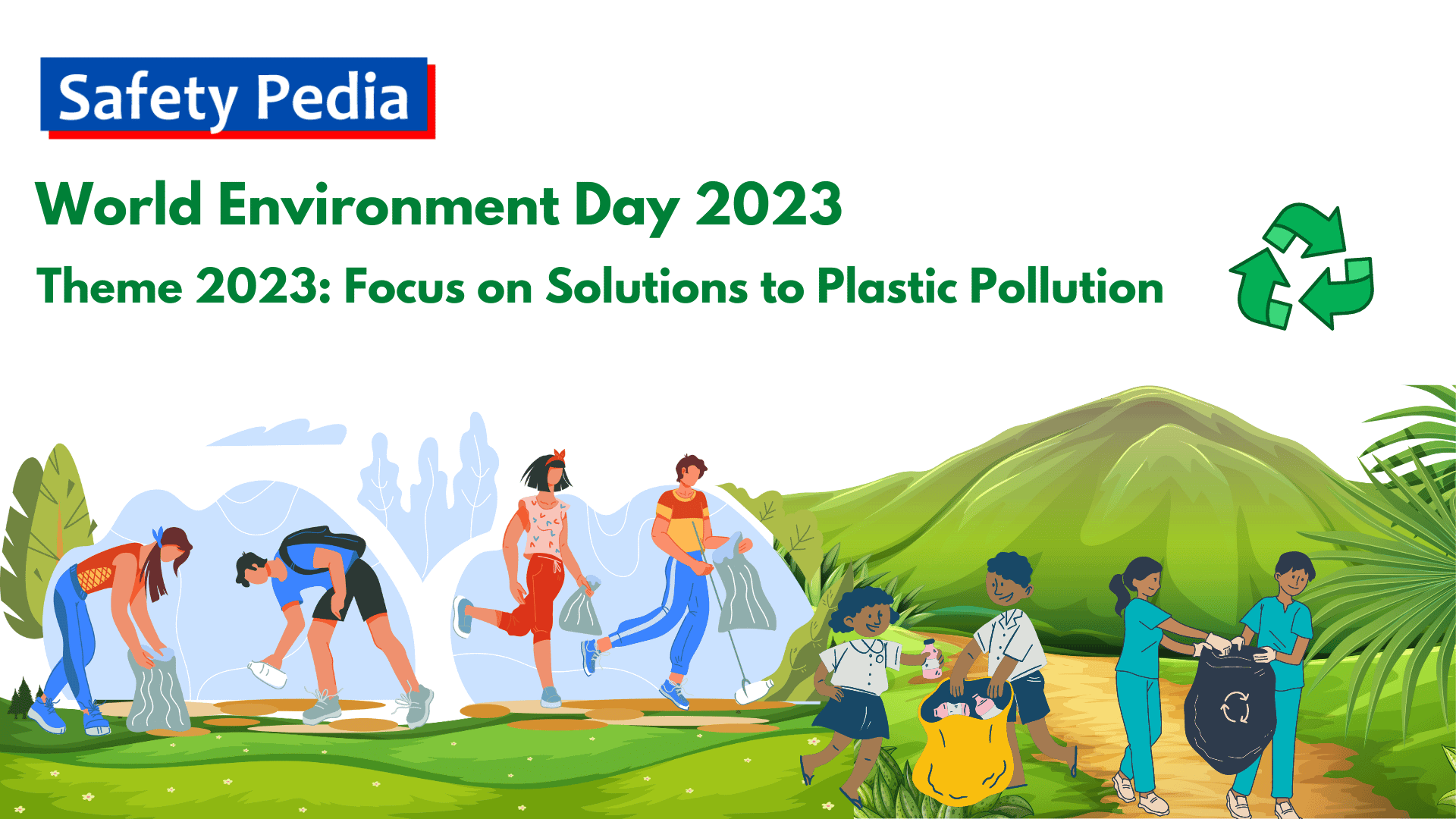Introduction
World Environment Day, a global event celebrated annually on June 5th, is a global initiative to raise awareness about environmental issues and encourage positive action. It was established by the United Nations General Assembly in 1972 to raise awareness of the importance of the environment and our responsibility to protect it. Each year, world environment day focuses on a specific theme that addresses crucial environmental challenges. It is a powerful platform to raise awareness about environmental issues and encourage positive action to protect our planet.
In this article, we will explore the significance of World Environment Day, its history, the 2023 theme, activities to do, the importance of environmental awareness and the actions individuals and communities can take to impact the environment positively.
The Importance of World Environment Day
By the year 20301, the world’s population will have increased by another billion people. This, combined with the effects of climate change, will put an unprecedented strain on our planet’s resources. World Environment Day plays a vital role in highlighting environmental concerns that affect our planet. It aims to engage individuals, organisations, and governments to take collective action towards a sustainable future. By raising awareness, this event empowers individuals to make informed choices and encourages businesses to adopt sustainable practices, ultimately leading to a healthier and greener planet.
World Environment Day is an important observance that serves as a global platform to raise awareness about environmental issues and promote positive action towards their resolution4. Here are some reasons why World Environment Day is significant:
Global Focus on Environmental Issues: World Environment Day provides a dedicated occasion for people and organisations worldwide to focus their attention on pressing environmental challenges. It serves as a reminder that the state of our environment affects everyone, regardless of geographic location or social background.
Awareness and Education: The day plays a crucial role in educating the public about various environmental issues, such as global warming, climate change, deforestation, pollution, biodiversity loss, and resource depletion. It encourages individuals to learn about these challenges, understand their impacts, and explore ways to address them. World Environment Day inspires people to adopt sustainable practices through campaigns, workshops, and educational initiatives. By fostering environmental awareness, this global event empowers individuals to decide wisely and take proactive steps towards a greener future.
Mobilising Action: World Environment Day serves as a catalyst for mobilising individuals, communities, governments, and organisations to take action towards environmental sustainability. It inspires people to make conscious choices daily, supports environmental initiatives, and drives local, national, and international policy changes.
Global Collaboration: The observance fosters collaboration and partnerships among governments, NGOs, businesses, and individuals. It provides an opportunity for different stakeholders to come together, share knowledge and expertise, exchange best practices, and work collectively towards finding solutions to environmental issues.
Policy Advocacy: World Environment Day offers a platform for advocating environmental policies and regulations. It encourages governments and decision-makers to prioritise sustainable development, enact stricter environmental laws, and allocate resources towards environmental protection and conservation.
Celebrating Successes: The day also celebrates environmental achievements and successes. It recognises the efforts of individuals and organisations that have positively impacted the environment, encouraging others to follow their lead and replicate their accomplishments.
Long-Term Impact: World Environment Day aims to create a lasting impact by promoting behaviour change and inspiring long-term commitments towards environmental sustainability. It seeks to instil a sense of responsibility and stewardship for the planet among individuals, fostering a sustainable mindset and lifestyle choices.
The Theme of World Environment Day 2023
2023 Theme: Solutions to Plastic Pollution
The theme for World Environment Day 2023 revolves around the pressing issue of plastic pollution. Plastic waste has become a significant environmental concern globally, posing a threat to ecosystems, wildlife, and human health. The theme highlights the urgency to address this problem and advocates for responsible plastic management. It calls for collective action to reduce plastic consumption, promote recycling, and find sustainable alternatives.
History of World Environment Day
World Environment Day (WED) is an annual event established by the United Nations General Assembly from June 5-16, in 1972, during the Stockholm, Sweden, Conference on the Human Environment. The first celebration occurred on June 5th, 1974, with the theme “Only One Earth.” This observance aims to raise awareness about environmental issues and promote positive action to protect the planet. Since then, World Environment Day has grown into a global movement, with participation from over 100 countries annually.
Here is a brief history of World Environment Day:
Establishment of World Environment Day: The United Nations Conference on the Human Environment, held in Stockholm in 1972, marked a significant milestone in international environmental cooperation. During this conference, the United Nations General Assembly declared June 5th as World Environment Day. The first WED was celebrated in 1974.
Growing Global Observance: Over the years, World Environment Day has gained momentum and become one of the principal platforms for environmental advocacy worldwide. Each year, the day is celebrated with various activities, events, and campaigns involving governments, organisations, communities, and individuals.
Theme-Based Approach: Since its inception, World Environment Day has been associated with different themes to focus attention on specific environmental issues. A new theme is chosen each year to drive global awareness and action on pressing environmental challenges.
Host Country and Celebrations: Each year, a different host country is selected to lead the celebrations and highlight environmental concerns specific to that region. The host country organises various activities, such as tree-planting drives, clean-up campaigns, conferences, exhibitions, and policy dialogues.
Global Impact: World Environment Day has significantly raised environmental consciousness and inspired positive action worldwide. It has played a role in shaping environmental policies, mobilising community engagement, promoting sustainable practices, and fostering international collaboration on environmental issues.
United Nations Environment Programme (UNEP) Leadership: The United Nations Environment Programme (UNEP) is the principal organisation responsible for coordinating World Environment Day activities. UNEP provides guidance, resources, and support to governments, organisations, and individuals in their efforts to celebrate and contribute to the day.
Beyond June 5th: World Environment Day is not limited to a single day of observance. It serves as a catalyst for year-round action and initiatives to protect the environment. The day encourages individuals and communities to make sustainable choices, adopt eco-friendly practices, and advocate for environmental conservation beyond June 5th.
The host country for World Environment Day in 2023
Each year, World Environment Day is hosted by a different country where official celebrations occur. The host country for 2023 is Côte d’Ivoire or Ivory Coast. Côte d’Ivoire has banned the use of plastic bags since 2014, supporting a shift to reusable packaging. The country’s largest city, Abidjan, has also become a hub for start-ups looking to beat plastic pollution2.
World Environment Day Activities
World Environment Day is observed worldwide with diverse activities that promote sustainable practices and environmental consciousness. Individuals, organisations, communities, and governments come together to participate in events such as:
- Tree-planting drives,
- Environmental cleanups,
- Educational campaigns,
- Workshops, and
- Seminars.
These activities serve as catalysts for change and encourage everyone to contribute to a healthier planet.
Best Practices for Tackling Plastic Pollution on World Environment Day
Plastic pollution is a global environmental crisis. This requires urgent actions to prevent plastic pollution. World Environment Day provides an excellent opportunity to address this issue globally, and everyone should contribute to preserving our planet. We can significantly impact by adopting best practices to reduce plastic waste and promote sustainable alternatives. The following are the effective strategies for tackling plastic pollution;

Reduce Use of Plastics:
Reducing the usage of single-use plastics is one of the best strategies to fight plastic pollution. The use of reusable alternatives, such as water bottles, shopping bags, and coffee cups, should be encouraged. Encourage individuals, businesses, and communities to opt for sustainable options that minimise plastic waste.
Promote Plastic Recycling:
Increasing plastic recycling rates is crucial for reducing plastic pollution. Encourage proper recycling practices by providing clear instructions and accessible recycling facilities. Educate individuals and communities about the importance of sorting plastic waste correctly to maximise its recyclability.
Support Circular Economy Initiatives:
Embrace the concept of a circular economy, which aims to minimise waste and keep resources in use for as long as possible. Support businesses and organisations that adopt circular practices, such as using recycled plastics in manufacturing processes or creating innovative products from recycled materials.
Engage in Coastal and Community Cleanups:
Organise or participate in coastal cleanups to prevent plastic waste from reaching our oceans. Mobilise local communities to clean up beaches, rivers, and other natural areas. Such initiatives raise awareness about plastic pollution and its impact on marine life while fostering a sense of collective responsibility.
Advocate for Policy Changes:
Advocate for policy changes and regulations that address plastic pollution effectively. Support measures include plastic bag bans, extended producer responsibility programs, and incentives for developing sustainable packaging solutions. Urge policymakers to prioritise the reduction of plastic waste in their environmental agendas.
Educate and Raise Awareness:
Spread awareness about plastic pollution and its consequences through educational campaigns. Utilise various platforms such as social media, workshops, and public events to inform individuals about the detrimental effects of plastic waste on ecosystems, wildlife, and human health. Empower people to make conscious choices and adopt sustainable practices.
Collaborate and Partner:
Forge collaborations with local organisations, businesses, and community groups to amplify efforts in tackling plastic pollutionCollaborative initiatives can include awareness campaigns, joint ventures, recycling drives, or the establishment of plastic-free zones in communities.
On World Environment Day, let’s make a commitment to tackle plastic pollution and protect our planet.
By implementing these best practices, we can contribute to a cleaner, healthier environment. Reducing single-use plastics, promoting recycling, embracing the circular economy, engaging in cleanups, advocating for policy changes, educating others, and fostering collaborations are essential steps in the fight against plastic pollution. Remember, no matter how small, every action counts towards building a sustainable future for generations to come3. Together, let’s take a stand against plastic pollution and make a positive impact on World Environment Day and beyond.
What to do on World Environment Day?
Actions Individuals Can Take
Every individual has the power to contribute to ecosystem restoration. Here are some actions you can take:
- Plant trees: Dare yourself to plant a tree. Planting trees support the environment. Trees are essential to ecosystem restoration by absorbing carbon dioxide, providing habitats for wildlife, and preventing soil erosion. Participate in tree-planting initiatives in your community or plant trees in your backyard.
- Reduce, reuse, and recycle: Practice responsible consumption by reducing waste, reusing items whenever possible, and recycling materials. This helps conserve resources and minimises the amount of waste that ends up in landfills.
- Conserve water: Imagine a world where water is as precious as gold, where the gentle trickling of a stream is a distant memory, and where thirst and drought haunt every corner. It’s a reality we may face if we continue to take water for granted. But have you ever stopped to ponder its scarcity? Once thought to be an endless resource, water is facing a crisis. Water scarcity is a significant environmental issue and every drop saved counts. Conserve water not just for ourselves but for the children yet to be born, the forests that breathe life into our planet, and the countless beings who depend on its existence. Simple steps such as by fixing leaks, reducing car wash, taking shorter showers, washing clothes only when necessary, and using water-efficient appliances.
- Choose sustainable products: Opt for eco-friendly and sustainably produced products. When purchasing, look for certifications such as organic, fair trade, or Forest Stewardship Council (FSC).
It’s time for a change, my friend. It’s time to awaken to the wisdom shared by Prophet Muhammad (PBUH), who, even centuries ago, recognised the value of water. His profound words echo through time: “Do not waste water, even if you are sitting on the bank of a river.”

Community Initiatives
Joining or supporting local community initiatives can significantly impact ecosystem restoration. Here are a few examples:
- Clean-up campaigns: Participate in your area’s beach clean-ups, river cleaning drives, or park restoration projects. These activities help remove litter and restore natural habitats.
- Wildlife conservation: Volunteer or donate to organisations that protect endangered species and their habitats. These organisations often conduct research, raise awareness, and work towards creating protected areas.
- Sustainable agriculture: Support local farmers who practice sustainable farming methods. Buy organic produce from farmers’ markets or join community-supported agriculture (CSA) programs.
Corporate Responsibility
Businesses play a crucial role in environmental conservation. Here’s how companies can contribute to ecosystem restoration:
- Sustainable practices: Implement environmentally friendly policies within the company, such as reducing energy consumption, minimising waste, and promoting recycling.
- Reforestation initiatives: Support reforestation projects by funding tree-planting initiatives or partnering with organisations specialising in ecosystem restoration.
- Green supply chain: Encourage suppliers to responsibly adopt sustainable practices and source materials. This helps reduce the ecological footprint of the entire supply chain.
Government and Policy Changes
Our governments and policy makers have a vital role to play in promoting ecosystem restoration. Here are some measures they can take:
- Conservation policies: Enact and enforce legislation that protects natural habitats, preserves biodiversity, and promotes sustainable development.
- Renewable energy promotion: Invest in renewable energy sources and incentivise businesses and individuals to transition to clean energy.
- Sustainable urban planning: Implement urban planning strategies that prioritise green spaces, reduce pollution, and promote sustainable transportation options.
Conclusion
Let’s take advantage of this chance to positively impact and create a world where humans and nature can thrive in harmony. World Environment Day is a significant event that unites people worldwide in a shared commitment to protect and preserve our planet and address and take action on environmental issues. By embracing the theme of focus on solutions to plastic pollution and implementing sustainable practices in our daily lives, we can contribute to a greener and healthier future for future generations. Celebrating this day helps foster environmental awareness and encourages sustainable practices and solutions to reduce or eliminate plastic from our lives. Let’s join hands, embrace the 2023 theme of tackling plastic pollution, and strive to make every day Environment Day.
References:
- https://escholarship.org/uc/item/68j1q8q6
- https://www.genevaenvironmentnetwork.org/world-environment-day/
- https://www.vector-green.com/
- https://www.worldenvironmentday.global




